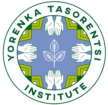With a vision to safeguard the environment and nurture local communities, the Institute has embarked on a Fish Farming initiative. The Upper Juruá Region has been grappling with the adverse impacts of climate change. Prolonged droughts have desiccated rivers, lakes, and springs, crippling fish migration and posing significant challenges to local populations reliant on fishing for sustenance. In response to these challenges, the Institute has taken proactive steps to counter the looming social catastrophe by establishing 28 fish ponds. These existing fish ponds serve as sanctuaries for native fish species, including Curimatã, Piau, Tambaqui, Tambacu, and Tilapia.
The Institute’s Fish Farming initiative serves a dual purpose: to address the pressing need for food security and provide viable alternatives to traditional cattle ranching and illegal fishing practices in the region. With plans to expand this endeavor through an additional 80 ponds, the Institute aims to meet the heightened local demand caused by environmental adversities. The scarcity of fish due to climate-induced changes has affected families’ ability to secure adequate food. Benki and the team at the Institute aim to alleviate the region’s hunger, poverty, and food insecurity by bolstering pisciculture projects.
Central to the success of this initiative is the engagement of Marquinho, a pisciculture technician entrusted with overseeing the project. His role is pivotal in ensuring the sustainable production of high-quality fish, which will be made available at fair prices, enabling economically disadvantaged families to access nutritious food year-round. Moreover, this initiative presents an economic alternative to expanding cattle farms, contributing to environmental conservation efforts.
Beyond the immediate impact on the Institute’s community, Benki envisions a broader dissemination of knowledge. Through technical workshops and the establishment of breeding facilities, the Institute aims to equip other communities with the tools and expertise to cultivate their own food sustainably. This approach eliminates costly transportation from distant towns and fosters self-reliance within communities.
Photograph by Aaron Vincent Elkaim.

